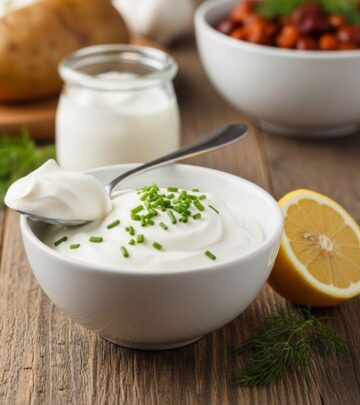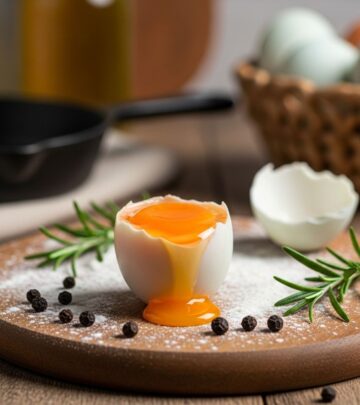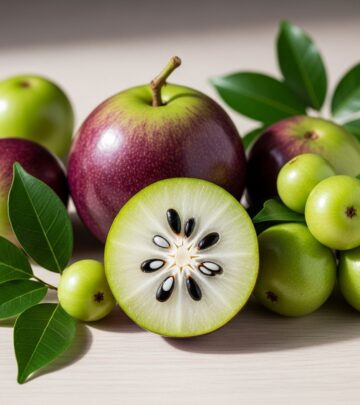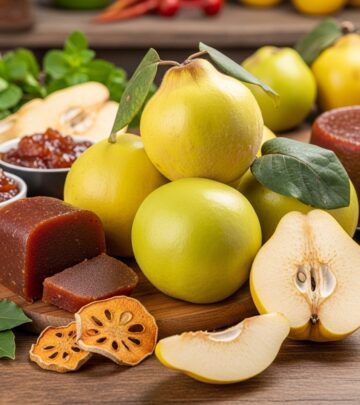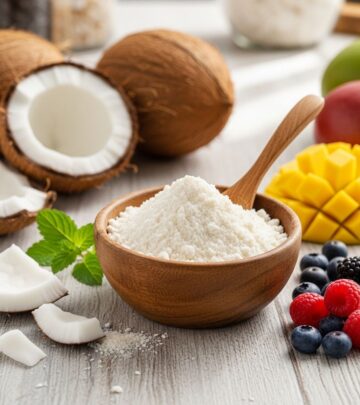7 Impressive Health Benefits Of Plantains: The Superfood For Your Heart, Immunity, And More
Cooked plantains deliver key nutrients that support heart health and blood sugar levels.
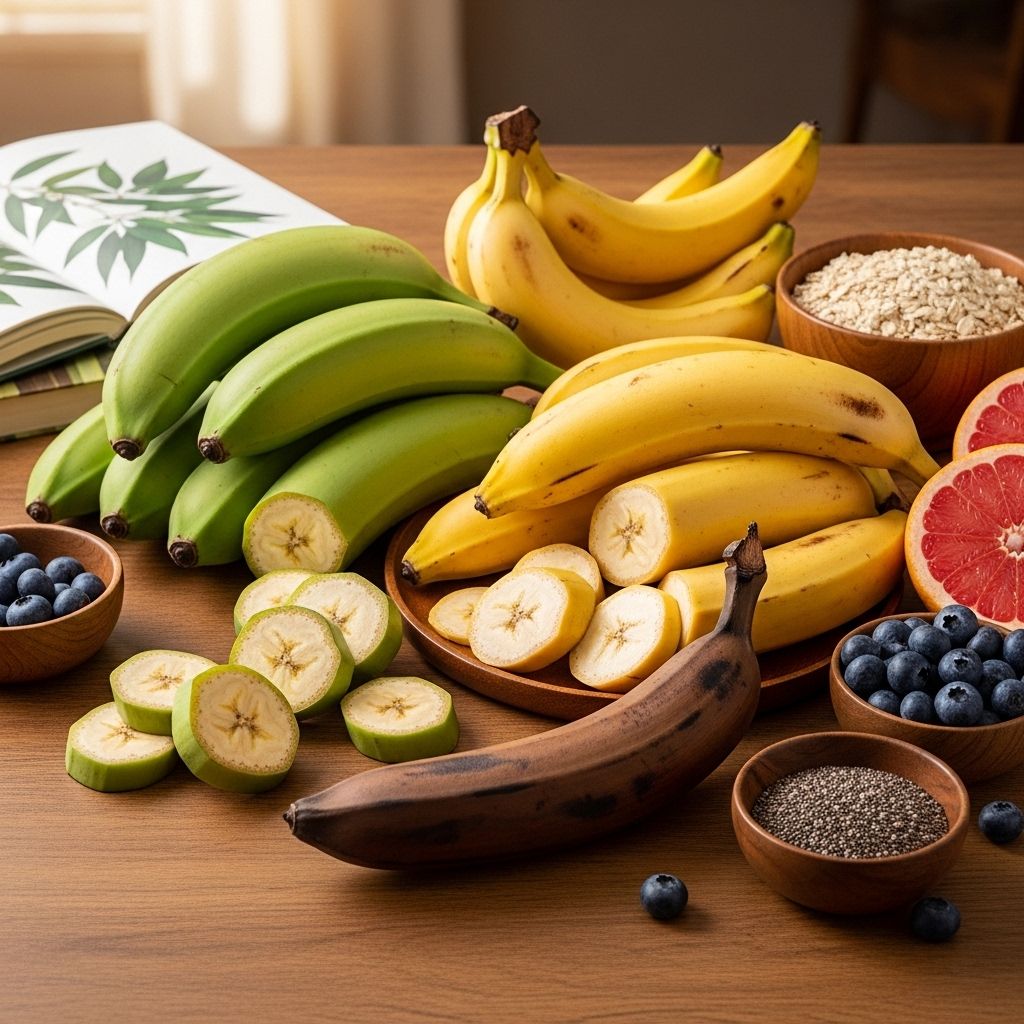
Health Benefits Of Plantains: 7 Reasons To Add This Superfood To Your Diet
Plantains, often confused with bananas, are a nutritious staple in many tropical cuisines and offer significant health rewards when prepared correctly. Packed with essential vitamins, minerals, and fiber, plantains may help regulate blood pressure, boost heart health, support immunity, aid digestion, assist in weight management, and help manage blood sugar. Here’s a comprehensive look at why plantains deserve a regular spot on your plate and how you can benefit from their nutritional richness.
Key Takeaways
- Plantains may improve cardiovascular health and regulate blood pressure due to their high potassium and fiber content.
- Boosts the immune system with antioxidants, vitamin C and vitamin A.
- Aids weight management by increasing satiety and supporting digestive wellness.
- Reduces oxidative stress through potent antioxidants like polyphenols, flavonoids, and vitamin C.
- Promotes digestive health and regular bowel movement with dietary fiber.
- Helps manage diabetes by providing resistant starch and low natural sugar content.
- Versatile ingredient best enjoyed cooked (not raw), as part of various sweet and savory dishes.
Nutrition Facts Of Plantains
Plantains are a nutrient-dense food supplying a range of vitamins, minerals, and complex carbohydrates. Here’s a breakdown per 100 g serving:
| Nutrient | Amount per 100g |
|---|---|
| Calories | 152 kcal |
| Carbohydrates | 36.7 g |
| Fiber | 2.2 g |
| Protein | 1.25 g |
| Potassium | 431 mg |
| Vitamin C | 20.2 mg |
Other key nutrients found in plantains include vitamins A, B6, magnesium, and traces of folic acid. Their combination of complex carbs, minerals, and vitamins makes them a healthier alternative to many other starchy foods.
7 Science-Backed Health Benefits Of Plantains
1. May Lower Blood Pressure
Plantains are rich in potassium, a mineral essential for maintaining healthy blood pressure levels. Studies suggest consuming potassium-rich foods like plantains may lower blood pressure, reduce stroke risk, and promote kidney health. Potassium helps relax blood vessel walls, counteracts the effects of sodium, and supports proper electrical signaling in the heart.
An anecdotal case shared by Anthony Baidooh, a farmer and health vlogger, notes improved blood pressure readings after regular intake of plantains and their peels—a testament echoed in clinical studies supporting potassium’s blood-pressure-lowering effects.
2. May Promote Cardiovascular Health
Soluble and insoluble fiber in plantains helps lower LDL (“bad”) cholesterol and support overall heart health. High fiber consumption is correlated with a reduced risk of heart disease and mortality. Fiber also reduces total serum cholesterol and blocks arterial buildup, while potassium complements heart function by stabilizing blood pressure.
For heart-protective benefit, plantains stand out as a nutrient-dense, naturally fiber-rich carbohydrate compared to processed grains and fried snacks.
3. May Reduce Oxidative Stress
Polyphenols, flavonoids, and vitamin C in plantains act as powerful antioxidants. They neutralize free radicals—unstable molecules responsible for tissue damage, inflammation, and aging. Plantain consumption may therefore lower risk of oxidative stress linked to chronic illnesses such as heart disease and cancer.
Antioxidants not only guard cells but may slow the aging process and reduce disease risk. Eating more antioxidant-rich foods supports a stronger, healthier body.
4. May Support The Immune System
Vitamin C and vitamin A in plantains strengthen the immune system through antioxidant and anti-inflammatory action. Vitamin C boosts cellular defenses against infection, while vitamin A is particularly critical for developing and regulating immune responses. Both vitamins help prevent illnesses, modulate inflammation, and accelerate recovery time from infections.
Vitamin A also supports skin, mucosal barriers, and the immune response, making plantains helpful for staying healthy year-round.
5. May Help With Weight Management
Dietary fiber and resistant starches in plantains provide satiety and prolong fullness. Consuming fiber-rich foods is associated with reduced risk of weight gain, better diet adherence, and improved outcomes on calorie-restricted plans. Fiber slows digestion, stabilizes blood sugar, and aids hormonal signaling for appetite regulation.
- Plantains supply complex carbs that digest slowly, minimizing blood sugar spikes.
- Fiber may reduce cravings and support healthy portions, which assists weight loss.
Regular intake can help curb snacking and manage weight goals healthfully.
6. May Promote Digestive Health
The fiber content in plantains softens stool, eases passage, and prevents constipation. Fiber boosts regularity, supports gut motility, and strengthens overall digestive function. It also feeds beneficial gut bacteria, which play a role in nutrient absorption and immune health.
- Regular fiber intake may alleviate symptoms of digestive disturbances, including indigestion and constipation.
- High-fiber diets help prevent digestive disorders, especially in those prone to gut sluggishness.
7. May Help Manage Diabetes
Unripe plantains contain resistant starch—a form of fiber not digested in the small intestine, which helps regulate blood sugar response. Plantains are low in natural sugars (especially when unripe) compared to ripe bananas, making them suitable for blood sugar management. They may help reduce the risk of hyperglycemia and support people living with type 2 diabetes when consumed as part of a balanced diet.
- Resistant starch improves insulin sensitivity and modulates blood glucose levels after meals.
- Adding more fiber to the diets of those with diabetes is recommended by nutrition experts for better management of the condition.
How To Safely Eat Plantains
Unlike bananas, plantains should never be eaten raw. Their dense, starchy texture makes raw plantains difficult to digest and unpalatable. Always prepare plantains by cooking—peeling, chopping, and then boiling, baking, grilling, or frying. Ideally, chop just before cooking to prevent rapid discoloration and texture changes.
Plantains can star in:
- Paleo pancakes and gluten-free recipes
- Stews and soups (vegetarian or meat-based)
- Grilled slices (side for fish, chicken, or vegetables)
- Mashed with eggplant (boronía) or made into arepas
- Oven-roasted snacks as a potato substitute
When frying, use healthy oils like olive or avocado oil instead of highly processed frying oils.
Plantains vs Bananas
| Feature | Plantain | Banana |
|---|---|---|
| Texture | Starchy, firm (raw) | Soft, sweet (raw) |
| Edible Raw? | No | Yes |
| Best Uses | Cooked (bake, fry, grill, boil) | Raw or cooked |
| Carbohydrate Type | Complex/starch | Simple sugar |
| Flavor | Mild, slightly earthy | Sweet |
| Use | Substitute for potato, stews, snacks | Snacking, smoothies, desserts |
Tips For Selecting, Storing, And Preparing Plantains
- Choose plantains by ripeness: Firm and green for savory dishes, yellow and slightly blackened for sweeter preparations.
- Store at room temperature: Plantains ripen naturally over days or weeks; avoid refrigeration unless fully ripe to slow changes.
- Peeling tip: Score the skin lengthwise to help remove the peel, as it is thicker than a banana’s.
- Chop just before cooking: Minimizes discoloration and preserves best texture.
Always cook plantains thoroughly to unlock nutrients and improve digestibility.
Plantain Recipes And Culinary Uses
- Baked plantain chips: Slice thin, brush with oil, season, and bake until crisp.
- Mashed plantains (Boronía): Steam or boil ripe plantains and mash with eggplant.
- Plantain stew: Dice for hearty soups with beans, meats or vegetables.
- Paleo pancakes: Blend ripe plantain with eggs for gluten-free pancakes.
- Roasted plantains: Simple oven-roasted option with salt and pepper.
Potential Side Effects And Precautions
- Do not eat raw plantains due to risk of digestive distress and poor nutrient absorption.
- Overconsumption may increase calorie and carb intake—balance with proteins and vegetables for healthy meals.
- For those with potassium sensitivity or kidney dysfunction, consult a health provider before increasing plantain intake.
- Monitor portions for diabetes management; choose unripe plantain for lower sugar content.
Frequently Asked Questions (FAQs)
Q: Can I eat plantains raw?
A: No, plantains should not be eaten raw. Always cook before consuming for best taste and digestibility.
Q: Are plantains healthier than bananas?
A: Plantains offer comparable nutrition but focus more on complex carbohydrates and lower sugars, making them better for savory cooking and blood sugar control, whereas bananas are sweet and often eaten raw.
Q: Can people with diabetes eat plantains?
A: Yes, especially unripe plantains, which have lower sugar and contain resistant starch beneficial for blood sugar regulation. Portion and preparation method matter; consult your nutritionist for individual needs.
Q: What is the best way to cook plantains?
A: Boiling, baking, or grilling plantains are healthiest; deep frying should be done sparingly and with healthier oils. Chopping just before cooking preserves their texture.
Q: What nutrients do plantains provide?
A: They are great sources of potassium, vitamin A, vitamin C, B6, magnesium, and dietary fiber.
Final Thoughts
Plantains are a versatile superfood with well-documented benefits for heart, digestive, immune, and metabolic health. By prioritizing cooked plantains in stews, snacks, or baked goods, you can enjoy their health rewards and culinary flexibility. Always eat plantains cooked—not raw—and incorporate them as part of balanced, nutrient-rich meals.
References
- https://www.stylecraze.com/articles/plantains-benefits/
- https://www.healthline.com/health/food-nutrition/plantain-nutrition-benefits
- https://www.chelseajoyeats.com/plantains-nutrition-benefits-use/
- https://www.stylecraze.com/articles/purslane-benefits/
- https://pmc.ncbi.nlm.nih.gov/articles/PMC4573141/
- https://www.masterclass.com/articles/plantains-vs-bananas
- https://www.britannica.com/plant/plantain
Read full bio of Sneha Tete


